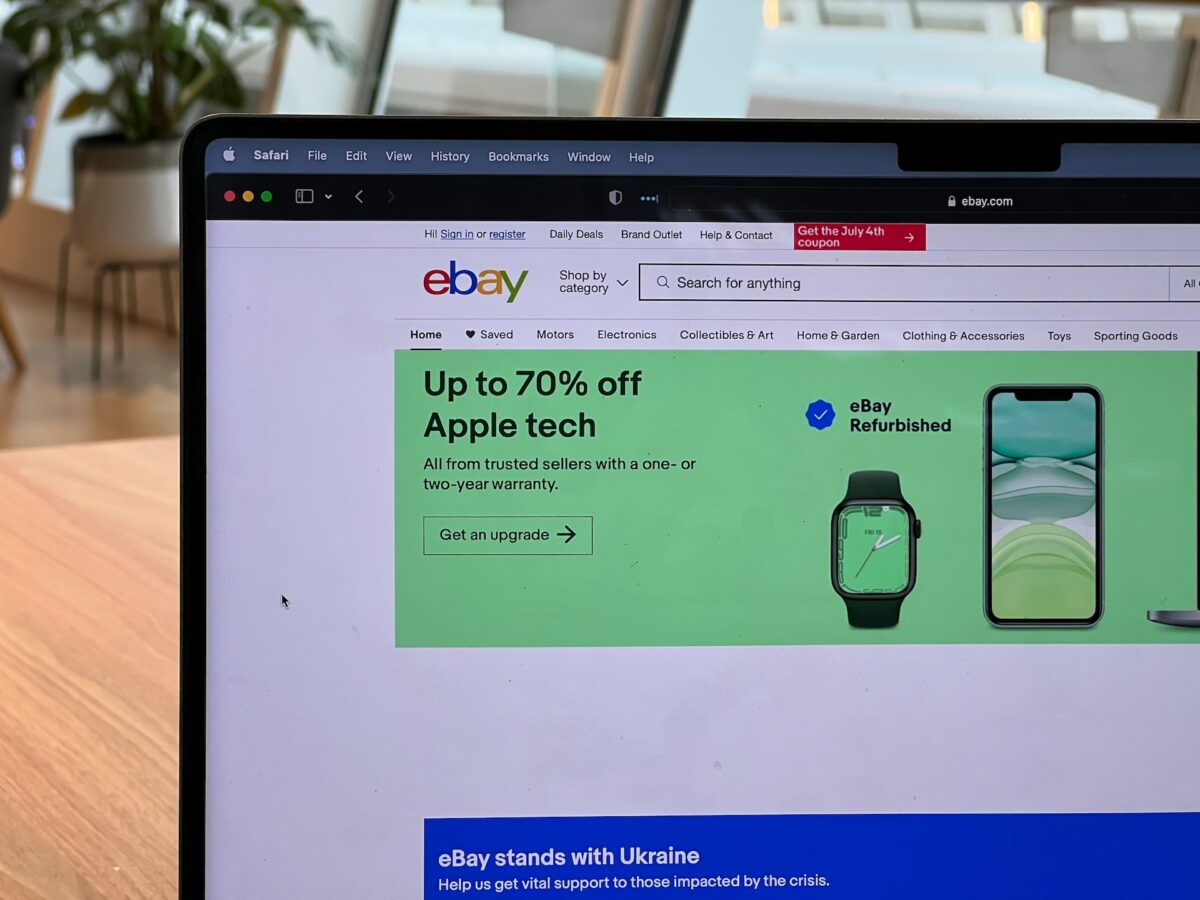Selling on ebay vs amazon, which is better? Both platforms have their pros and cons, and it can be challenging to decide which one suits your business needs.
In this article, we’ll compare the two platforms and help you make an informed decision.
When it comes to selling on Amazon, the platform is known for its vast customer base and high traffic.
Amazon is a great platform for you if you’re looking to sell new products at fixed prices.
However, the fees can be higher than those on eBay, and you’ll need to pay a monthly subscription fee of $39.99 as a professional seller.
On the other hand, eBay is known for its flexibility, allowing sellers to choose between fixed prices and auction-style listings.
eBay also has lower fees, making it a more affordable option for small businesses.
Post Contents
Overview Of eBay And Amazon
What Is eBay?
eBay is an online marketplace where sellers can list and sell their products to buyers.
It was founded in 1995 and has since become one of the largest e-commerce platforms in the world.
eBay is known for its auction-style listings, where buyers can bid on items until the auction ends.
However, eBay also offers fixed-price listings, where sellers can set a price for their item and buyers can purchase it immediately.
As a seller on eBay, you can sell both new and used items, and you have the option to offer free shipping or charge for shipping.
eBay charges sellers a fee for each item sold, which varies based on the category of the item and the selling price.
What Is Amazon?
Amazon is also an online marketplace where sellers can list and sell their products to buyers.
However, Amazon is primarily known for its fixed-price listings, where buyers can purchase items immediately.

Amazon was founded in 1994 and has grown to become one of the largest e-commerce platforms in the world.
As a seller on Amazon, you can sell both new and used items, and you have the option to offer free shipping or charge for shipping.
Amazon charges sellers a fee for each item sold, which varies based on the category of the item and the selling price.
Amazon also offers a fulfillment service called Fulfillment by Amazon (FBA), where sellers can send their inventory to Amazon’s warehouses and have Amazon handle the shipping and customer service for their orders.
Overall, both eBay and Amazon offer sellers a platform to sell their products to a large audience of buyers.
However, each platform has its own unique features and fee structures, which may make one platform more suitable for your business than the other.
Selling On eBay Vs Amazon
When it comes to selling products online, eBay and Amazon are two of the most popular marketplaces.
However, there are some key differences between the two platforms that you should consider before deciding which one to use for your business.
Fee Structure
One of the main differences between eBay and Amazon is their fee structure.
eBay’s fees are generally lower than Amazon’s. eBay charges sellers an insertion fee when they create a listing, while Amazon charges a referral fee based on the product category and a per-item fee.
Product Categories
Another difference between eBay and Amazon is the type of products that are sold on each platform.
While both platforms offer a wide range of products, Amazon is known for selling new, branded products, while eBay is known for offering a mix of new and used items, including unique and hard-to-find items.
Seller Requirements
The requirements for selling on eBay and Amazon are also different. To sell on eBay, you need to create an account and have a verified PayPal account.
On the other hand, to sell on Amazon, you need to create a seller account, provide a valid credit card, and have a bank account for receiving payments.
Shipping And Handling
Another difference between eBay and Amazon is the shipping and handling process.
eBay allows sellers to set their own shipping rates and methods, while Amazon has strict guidelines for shipping and handling.
Amazon also offers its own fulfillment service, known as FBA, which handles the storage, packing, and shipping of products for sellers.
Customer Base
Finally, the customer base on eBay and Amazon is different. eBay has a reputation for having a more niche customer base, while Amazon has a wider customer base that includes both casual shoppers and serious buyers.
Additionally, Amazon has a reputation for having a more loyal customer base, which can be beneficial for sellers who want to build a long-term relationship with their customers.
In summary, both eBay and Amazon offer unique benefits and drawbacks for sellers.
Consider your business needs and goals when deciding which platform to use for your online sales.
Pros And Cons Of Selling On eBay
Advantages Of Selling On eBay
When it comes to selling online, eBay can be a great platform for your business. Here are some advantages of selling on eBay:

- Lower fees compared to Amazon: eBay’s standard account fees are often less than 9.15%, while Amazon charges a standard fee of 15% plus a $0.99 fee per item.
- Access to a large customer base: eBay has over 185 million active buyers worldwide, which means you have a better chance of reaching more potential customers.
- Easy to use: eBay’s platform is user-friendly, and it’s easy to list items for sale, manage inventory, and process orders.
- Ability to set your own prices: With eBay, you have the ability to set your own prices and negotiate with buyers.
Disadvantages Of Selling On eBay
While there are many advantages to selling on eBay, there are also some disadvantages to keep in mind:
- High competition: eBay is a highly competitive marketplace, which means you may have to work harder to stand out and make sales.
- Limited branding opportunities: Unlike Amazon, eBay doesn’t offer many branding opportunities, which means it may be harder to build brand recognition and loyalty.
- Limited customer support: eBay’s customer support can be limited, which means you may not be able to get the help you need if you run into issues.
- Lower trust compared to Amazon: eBay has a reputation for being a platform where buyers can find deals, which means some buyers may be more skeptical of your products and prices.
Overall, selling on eBay can be a great option for your business if you’re looking for a platform with lower fees, a large customer base, and an easy-to-use platform.
However, keep in mind the disadvantages as well, such as high competition and limited branding opportunities.
Pros And Cons Of Selling On Amazon
If you are considering selling on Amazon, it is important to weigh the advantages and disadvantages of the platform.
Here are some pros and cons to help you make an informed decision.
Advantages Of Selling On Amazon
- Large Customer Base: Amazon has a massive customer base, which means that you have access to millions of potential customers. This can help you reach a wider audience and increase your sales.
- Fulfillment Services: Amazon offers fulfillment services, which means that they will handle the shipping, handling, and customer service for you. This can save you time and money, and allow you to focus on other aspects of your business.
- Buyer Trust: Many customers trust Amazon and are more likely to purchase from a seller on Amazon than from an unknown website. This can help you build trust with your customers and increase sales.
- More Branding Opportunities: Amazon offers various branding opportunities, such as Amazon Brand Registry, which can help you protect your brand and increase visibility.
Disadvantages Of Selling On Amazon
- More Restricted Categories: Amazon has more restricted categories than eBay, which means that it may be more difficult to list certain products.
- Extra FBA Fees: While Amazon’s fulfillment services can save you time and money, they do come with extra fees. You will need to pay for storage, shipping, and handling fees, which can eat into your profits.
- More Difficulties to List Products: Amazon has strict listing requirements, which can make it more difficult to list your products. You will need to provide detailed product descriptions, images, and other information to list your products.
- More Competition: With millions of sellers on Amazon, there is a lot of competition. This can make it more difficult to stand out and make sales.
Overall, selling on Amazon can be a great way to reach a large customer base and increase your sales.
However, it is important to weigh the pros and cons and determine if it is the right platform for your business.
Which Platform Is Right For You?
When it comes to choosing between eBay and Amazon, there are several factors to consider.
Here are some things to keep in mind before making your decision:

1. Target Audience
Consider your target audience before deciding which platform to use. If you are selling niche products, eBay may be a better option as it has a more diverse user base. On the other hand, if you are selling products that have a broad appeal, Amazon may be a better choice as it has a larger customer base.
2. Fees
Both platforms charge fees, but the structure is different. eBay charges lower fees, but they can add up quickly if you sell a high volume of items. Amazon has higher fees, but it offers more services to sellers, such as fulfillment by Amazon (FBA), which can save you time and money.
3. Seller tools
Both eBay and Amazon offer a selection of tools to sellers within the platform. Amazon sellers can access business reports, sales, and traffic insights, and listing promotion tools. eBay offers a suite of tools for analytics, store promotion, and FBA service for shipping.
4. Customer Trust
Amazon tends to outperform eBay in terms of customer trust. Customers trust Amazon more due to its strict seller policies and customer service. This can lead to higher sales and more repeat customers.
5. Shipping
If you are selling products that require fast and reliable shipping, Amazon may be a better choice. With FBA, Amazon takes care of shipping, customer service, and returns, which can save you time and money. eBay, on the other hand, does not offer a similar service.
Ultimately, the decision of which platform to use depends on your specific needs and goals. Consider your target audience, fees, seller tools, customer trust, and shipping needs before making your decision.
Key Takeaways
When it comes to selling online, Amazon and eBay are two of the biggest marketplaces out there.
Both platforms have their pros and cons, and choosing between them can be a difficult decision.
Here are some key takeaways to keep in mind as you decide which platform to use:
- Pricing and Fees: eBay is generally cheaper than Amazon when it comes to fees. Amazon charges a standard fee of 15% with a $0.99 fee per item, while eBay fees for a standard account are often less than 9.15%. However, keep in mind that eBay also offers an auction model, which can lead to lower prices for your items.
- Product Types: Amazon is generally better for selling new products, while eBay is better for selling used or unique items. Amazon’s fixed-price model is great for new products that you can sell at a consistent price, while eBay’s auction model is perfect for selling used items that may have a wide range of values.
- Audience: Amazon has a larger audience than eBay, with over 300 million active users compared to eBay’s 185 million. However, eBay’s audience tends to be more focused on specific niches and interests, which can be an advantage if you sell products that fit those niches.
- Ease of Use: Amazon is generally easier to use than eBay, with a more streamlined selling process and better support for sellers. However, eBay has made significant improvements in recent years and is now much easier to use than it used to be.
Ultimately, the choice between Amazon and eBay depends on your specific needs and goals as a seller.
Consider factors like pricing, product types, audience, and ease of use as you make your decision.
With the right approach, either platform can be a great choice for selling online.






























